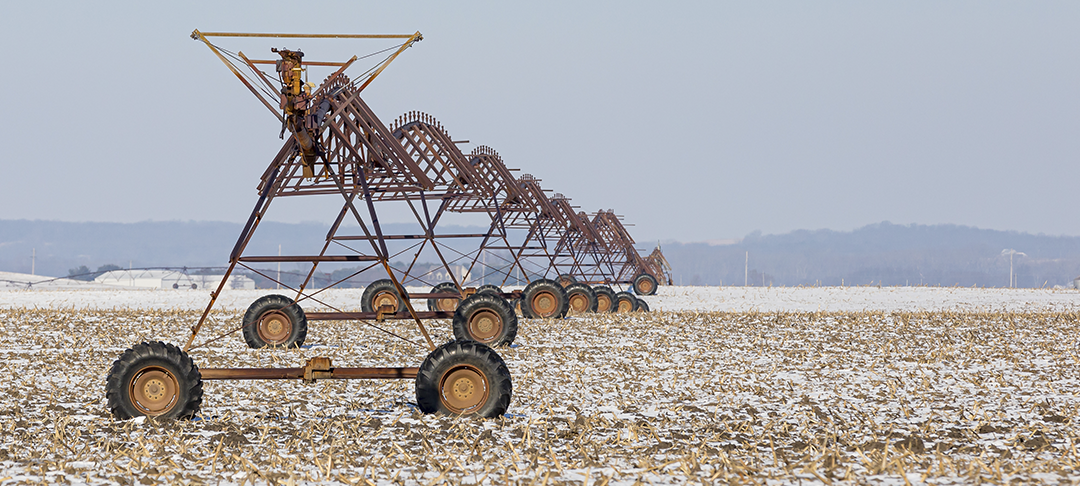As the calendar flips to the new year, it’s time for farmers to shift their focus from winter to spring planting. In this blog, our NuTech Certified Crop Advisors Brad Johnson, Lead Agronomist, and Ryan Booton, Sales Agronomist, share valuable insights and tips to help you make informed decisions and prepare for the upcoming growing season.
Weed Control: A Strategic Approach
Ryan emphasizes the importance of fall burndown in controlling winter annual weeds like common chickweed, henbit, and marestail. If you missed the fall burndown, evaluating your herbicide program for the next year is crucial, considering the traits you plan to use. Target fields with a history of weed pressure and be prepared to address these challenges head-on.
Corn Rootworm Vigilance
Brad draws attention to the looming threat of western and northern corn rootworms, highlighting the unexpected pressure witnessed even in corn-soybean rotations during dry growing seasons. Considering the unpredictable weather ahead, farmers are urged to explore fully-traited products like Qrome® corn or Vorceed™ Enlist® corn, even in corn-soybean rotations, to combat potential corn rootworm pressure effectively.
Tracking Tar Spot: Lessons from 2023
Ryan and Brad agree that farmers need to pay attention to the emergence of tar spot, a concern that gained prominence later in the year than expected. While emphasizing not to base hybrid selection on a single factor, a good tar spot rating becomes important, especially after its increased footprint in the Corn Belt during the past year.
Cover Crops Caution
Ryan advises farmers to ensure timely termination of cover crops for corn and soybean planting, stressing the need for proper planter adjustments. Failing to terminate cover crops before planting can lead to nutrient competition and become a breeding ground for insects like slugs and black cutworms.
Mold Management: A Proactive Approach
Ryan stresses the importance of robust disease management programs, specifically in combating white mold in soybeans. With the northeast Iowa/northern Illinois/southern Wisconsin region experiencing the highest instances of white mold, the introduction of Enlist E3® soybeans brings improved white mold tolerance to the table, providing a positive step forward in mold management.
Program Planning for Success
Brad urges growers to proactively plan their chemical programs, collaborating with retailers and ag chemical suppliers. A program with multiple modes of action and solid residuals is critical for quality and season-long weed control, particularly in Enlist E3 soybeans. Being proactive now can prevent resistance issues in the future.
Anticipating Better Genetics
Looking forward to the spring of 2024, Brad and Ryan unveil a new soybean class with significantly enhanced defensive traits. These soybeans promise better performance with improved SDS, stacked Phytophthora resistance, and advanced white mold traits. The Corteva Agriscience breeding program stands out, teasing even higher-yielding soybeans with improved agronomics in the pipeline for the near future.
As you gear up for the 2024 season, adopting a proactive and strategic approach, considering the lessons learned from the past year, and embracing advancements in genetics will undoubtedly contribute to a successful and rewarding farming experience. Get ready to sow the seeds of progress and prosperity in the upcoming planting season!

